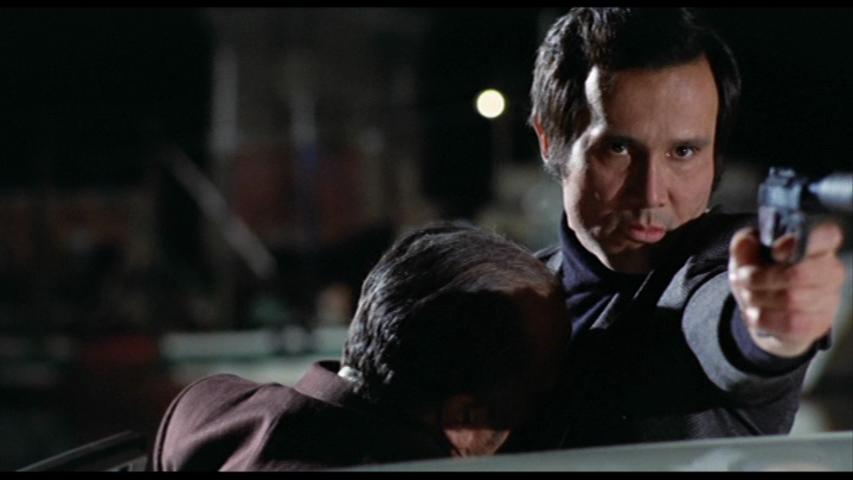Caliber 9 (1972) - 7.5
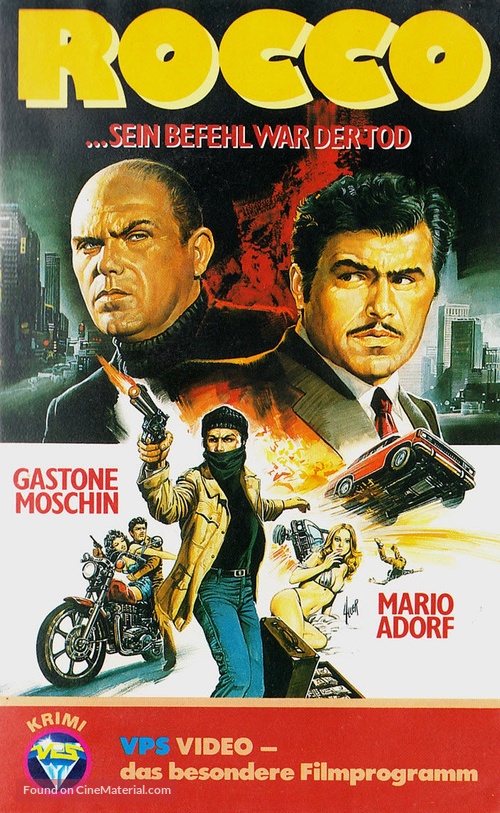
Aka - Milano Calibro 9
There isn't a shred of sympathy or pity in this first film in the Italian crime trilogy (milieu trilogy) from Fernando Di Leo (the other two being The Italian Connection and The Boss). This film is ruthless and has a heart of stone with no tears being shed for the many dead. The lack of romanticizing the subject is refreshing. There are no heroes; just men who chose a life of crime and murder. Within that world there are supposed to be rules but not many. One is you don't steal from your boss. That has consequences as we see in the opening scene.
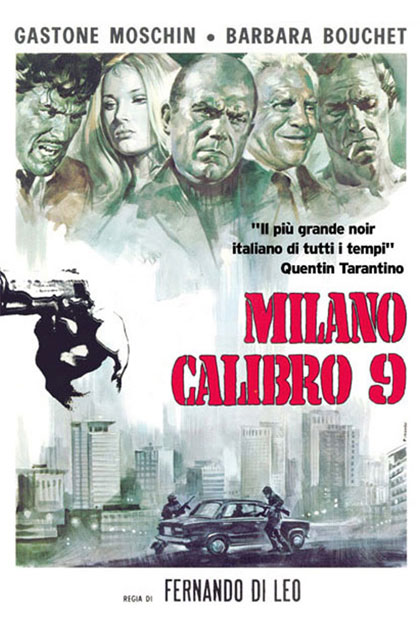
The American (Lionel Stander) as he is referred to has a money laundering operation. This being 1972 it is still manual - runners transport the money that the wealthy want to get out of the country from hand to hand to throw off the cops till it gets to its final destination. When it does this time it is nothing but blank paper. They gather up three of the runners, none admit to the theft and so you put them in a cave and blow them up with dynamite. Lesson taught. This display of gang rules leads to the main story. Ugo Piazza (Gastone Moschin) an everyday sort of thick necked middle aged thug gets out of prison after three years. He is standard issue in the ranks of the gang - does what he is told - kills who he has to kill - doesn't think too much for himself - but he knows the game he is in. As soon as he steps outside the prison gates he is accosted by the loud mouthed Rocco (Mario Adorf) and his fellow tough guys who accuse Ugo of having stolen $300,000 as a laundry runner and then got himself put in jail intentionally for a failed robbery. He denies it. They beat him. But don't kill him. Eventually, he will go for the money they figure.
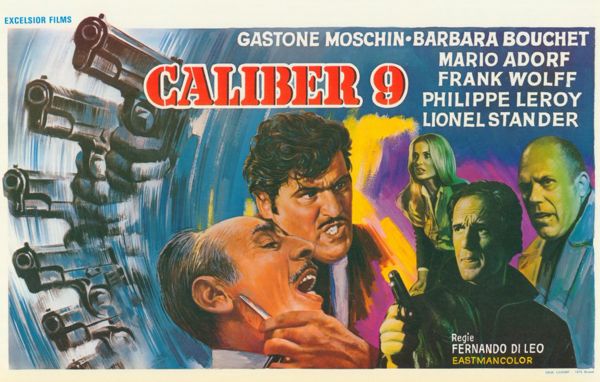
The film revolves around Ugo, the gang pressuring him to give up the money and his denials to everyone through multiple beatings and threats. To his hitman friend Chino, to the American and to his old girlfriend Nelly, full time dancer, part time prostitute. He swears he didn't take it. The girl is played by Barbara Bouchet who was very familiar with the Giallo films but also bounced back and forth between Europe and Hollywood (Miss Moneypenny in the 1967 Casino Royale), She is as sleek as a Maserati, has cheekbones so sharp they could cut diamonds and has the warmth of a cobra. Ugo just takes it all with a taciturn fatalistic acceptance. The audience is in the dark as much as the people around him. If he didn't steal the money, who did? He tells Nelly that he will find out and clear his name - in the ranks of the crime family. When another package of money goes missing, all hell breaks out. Terrific hard hitting plow straight ahead crime film that never rests or relents. It has a wonderful driving score from Luis Bacalov.
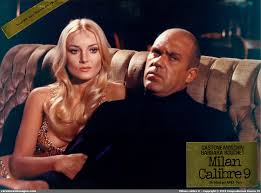
Before Di Leo got into directing he was behind a lot of scripts - a lot of them being Spaghetti Westerns. A few familiar titles in the genre - Johnny Yuma, Navajo Joe, God Made Them . . . I Kill Them - but by the 70's that genre was slowing down and the crime genre was in full throttle. So he shifted to crime with a number of films in that decade but these three are from what I have read considered his best.
The Italian Connection (1972) - 7.5
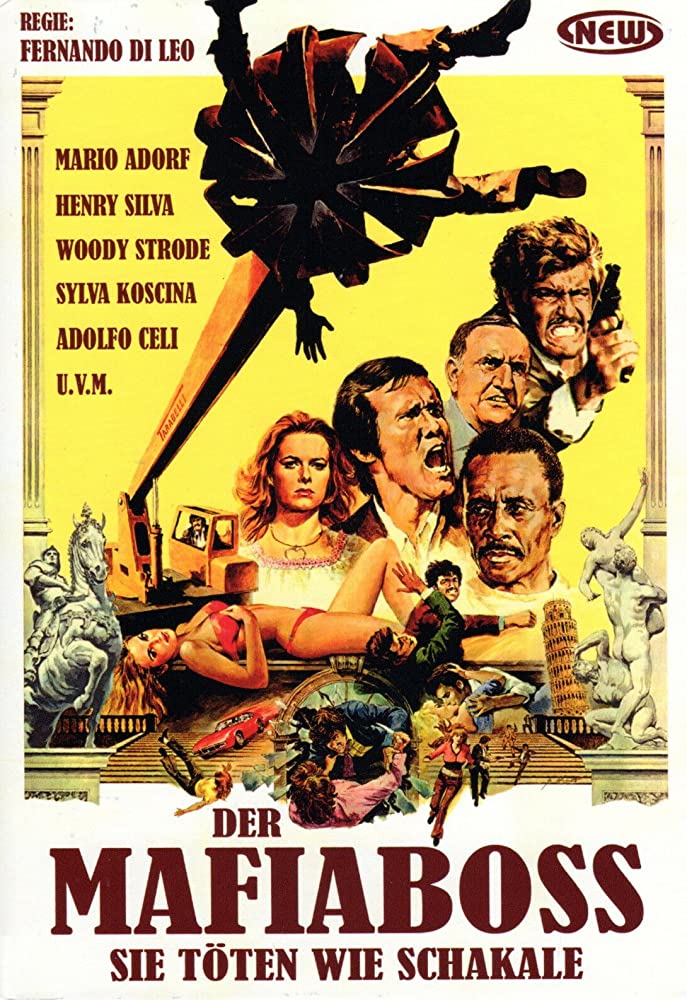
Aka - Manhunt
Aka - La mala ordina
The second in the Fernando Di Leo crime trilogy. All three of these are terrific - gritty and violent with amoral men going about their work as if they are King Dicks in a world where they can't be touched by the politicians or the cops who have been bought. And civilians just stay quiet. They only have to fear each other. Gang against gang or you become a pawn to be sacrificed by your own group. Unlike the other two, this one has a sympathetic main character that you begin to cheer for. Sure he is a lowlife pimp with a string of girls, but as far as we can tell he treats them well and he is a happy-go-lucky guy with a huge smile and a pat on the back for everyone. He could just as easily have sold cars, but he chose to sell women instead. He can be tough too - you learn to be tough in that trade - smack around customers who get out of hand or other pimps who encroach on your territory but basically everyone loves Luca Canali (Mario Adorf). Still someone wants him dead.
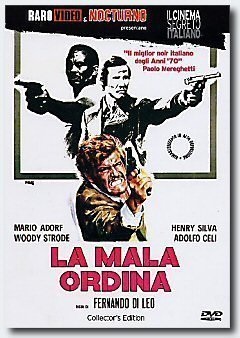
Corso (Cyril Cusack) who is one of the big crime bosses of Milan calls for two killers from America. We are still number one at something. He has a something that needs to be done. Find Luca Canali and kill him in such a manner that everyone knows who did it and why it was done. An example for others who stray from the rules. Luca apparently stole a big shipment of heroin. The two killers are two of the best played by Woody Strode and Henry Silva with their mission kill button on. Silva likes playing with the girls a bit while Strode never cracks a smile or an ounce of interest in anything other than doing his job and going home. A total professional.
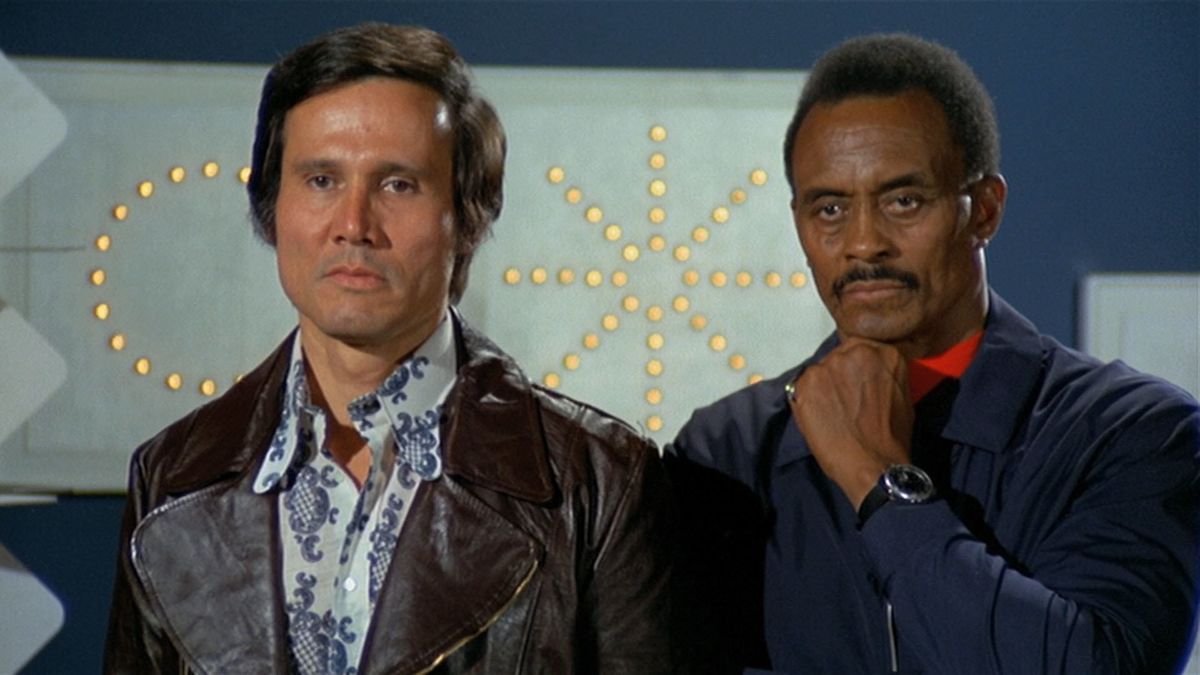
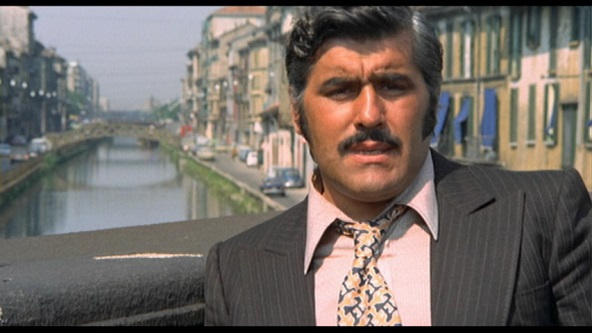
Corso assigns an employee Eva (Luciana Paluzzi - Thunderball) to show them around town - strip clubs and party people - lots of casual nudity in this one. First they visit Luca's boss - Don Vito Tresoldi (Adolfo Celi - also Thunderball) and tell him they want Luca delivered to them alive. Tomorrow. Easy. Everyone knows Luca. A lousy pimp. But as it turns out with with the survival instincts of a cockroach. Soon he is doing the killing. Very good. Tense and on a rollercoaster. There is one great chase from foot to car to foot in which Luca gets on the hood of the car and cracks the windshield with his head. But he has no clue why they are trying to kill him - someone has set him up. He has to pay. Also, in the cast is Sylva Koscina as Luca's wife.
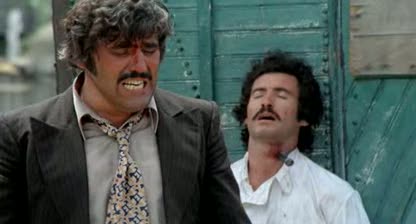
The Boss (1973) - 7.0
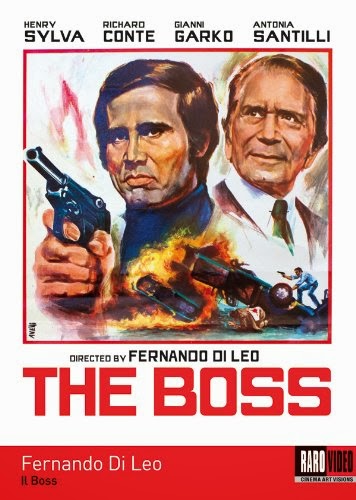
Aka - Il Boss
At night a man gets out of a car carrying a long case with him. He moves down an alley in the shadows to a door that he opens and steps inside. Once inside you see his face and his cold dead eyes. Henry Silva. And you know someone is about to be killed. That is what Silva usually does in films. In this case he walks into a projection booth where down below a group of men are watching a porno film. He opens the case and takes out a hand grenade launcher and kills everyone. The people down below were the heads of a local Mafia branch in Sicily. A Mafia war is underway.
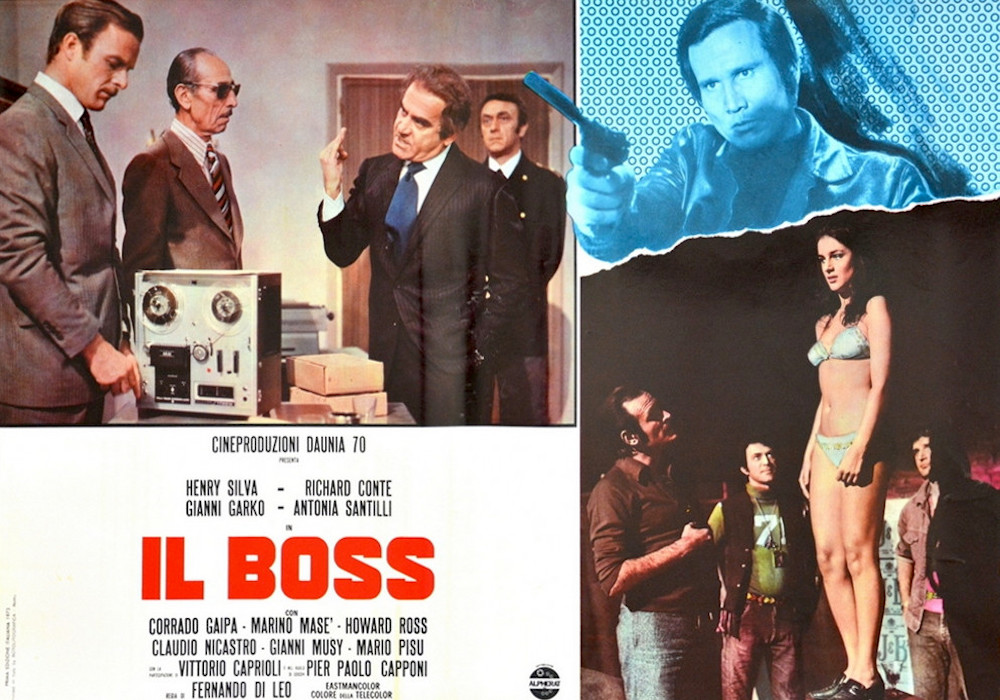
An Italian Mafia war pitting two groups against one another and a system rife with corrupt cops and politicians. Nobody is good here. Or honorable. Everyone is scheming, everyone is willing to kill a friend, a mentor, a boss in order to survive, to move up the ladder, to please the bosses up in Rome. Promises are empty words. Loyalty is a currency to be spent. Everyone is expendable. The film is led by two American actors who have both had their share of crime films. The great Henry Silva who has played professional killers more than a few times and Richard Conte, a terrific tough guy presence in films going back to the 1940's playing both crooks and cops always with a sense of style and swagger. One of the corrupt cops is played by Gianni Garko, who back in the 1960's took on the role of Sartana a few times in Spaghetti Westerns.
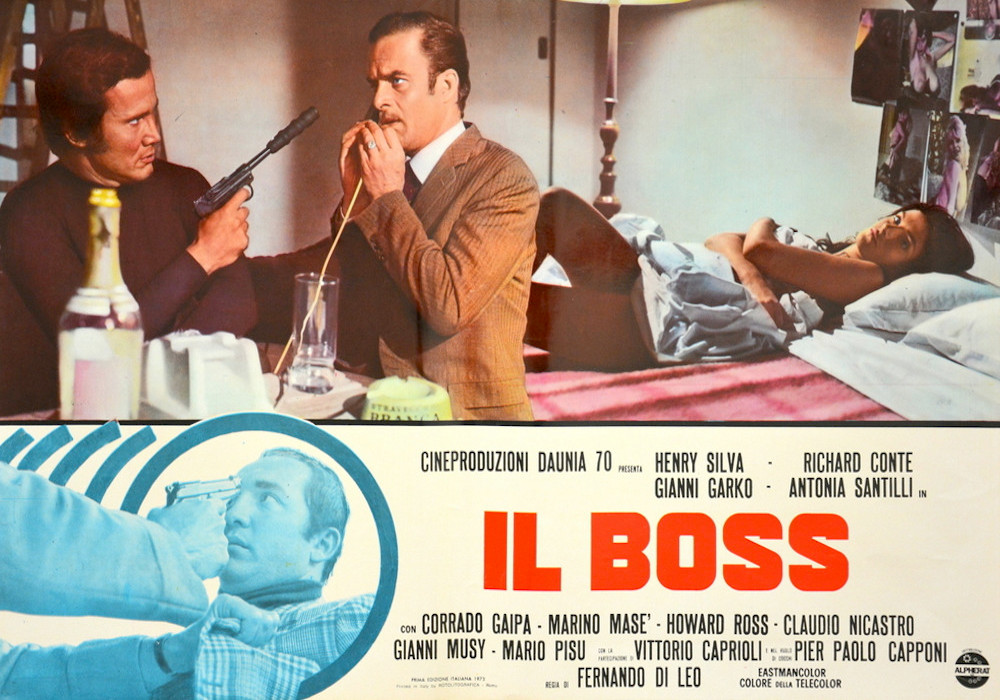
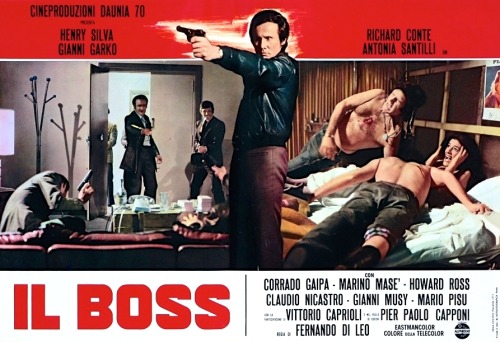
Conte plays Don Corrasco, the head of the group that committed the mass killing. Silva is Lanzetta, his number one killer. In response to the killings the other group kidnaps the daughter of the number two man and Lanzetta is ordered to get her back. She is actually having a good time indulging in group sex and drugs and is a little pissed when she is rescued in the middle of a threesome. The other two don't complain. They have holes in their head. Lanzetta takes her back to his apartment and enters into a week of sex with her. Actress Antonia Santilli spends much of the film exposing her breasts to admiring eyes. Mine anyways.
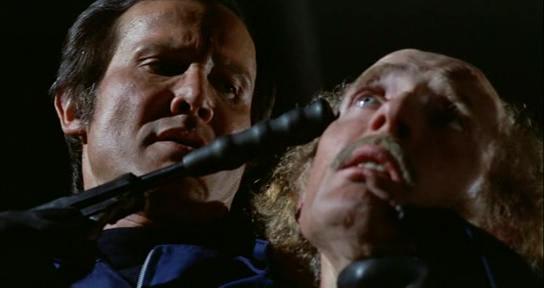
It gets messy, people are being killed and the Boss up north wants it cleaned up. Wants the killings stopped. Find a scapegoat and be done with it. Well played out with a good portion of violence, sex, tough talk and betrayals. There is also an excellent score by Luis Bacalov. Directed by Fernando Di Leo with a few well-respected crime films to his credit. At the end it says To Be Continued but as far as I can tell there was no follow-up.
